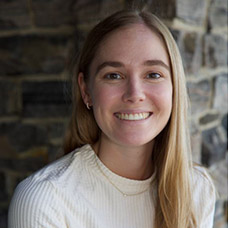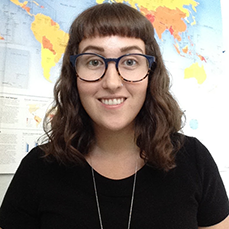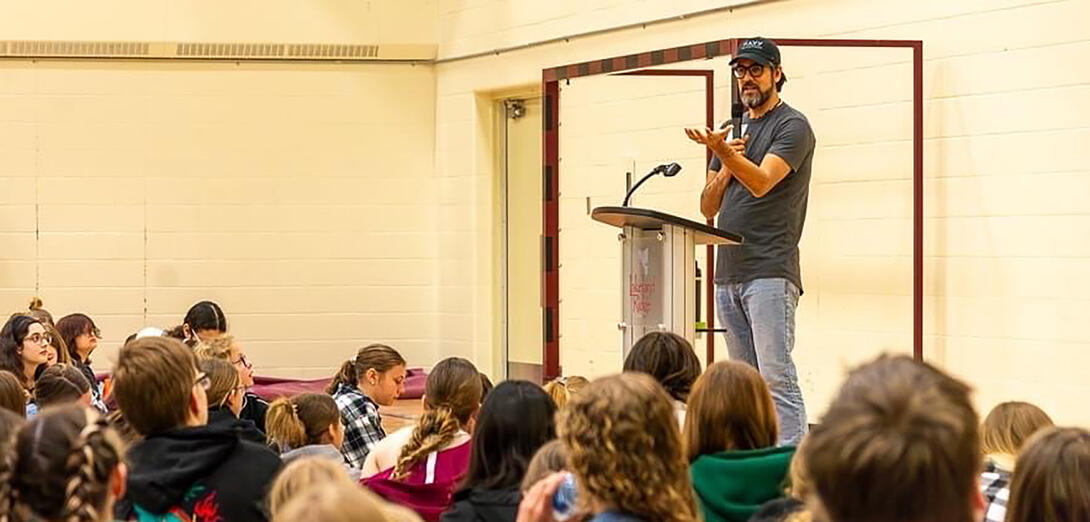With more wild storms, fires, floods and searing heat, Canadians are increasingly concerned about climate change. But learning how best to respond to Canada’s climate emergency remains a challenge. How do we create a climate-literate society that has the knowledge and motivation to act to mitigate and adapt to a changing climate? In the face of these escalating environmental and social crises, education remains a crucial tool to enhance awareness, understanding and action. Traditional teaching methods must evolve to address these complex issues and the eco-anxiety that young people are currently facing.
According to Learning for a Sustainable Future’s (LSF) recent national climate change education survey, Canadians’ Perspectives on Climate Change & Education, 81 per cent of Canadians agree that climate change is happening, but only 55 per cent understand that greenhouse gas emissions are the primary cause. Only a very small portion of the population (17 per cent) think that the Canadian government is doing a good job addressing climate change. Half of Canadians believe that climate change is either causing mental health issues or making them worse. Students are more likely than any other respondent group to report feeling anxious (41 per cent) or frightened (31 per cent).
There is wide agreement (64 per cent) that the education system should be doing “a lot more” to educate young people about climate change. However, only a third (34 per cent) of educators feel they have the knowledge and skills needed to effectively teach climate change; they are calling out for more support in the form of more classroom resources, materials and professional development.
The need for better climate change education is clear. In order to prepare our young people for a climate-altered future, our school system needs to do more. Canadians overwhelmingly say it is time for education ministries across Canada to incorporate climate change into virtually all subjects and across all grades K–12. This extends past science class, including geography, health, math, art, business and others as well. Climate change connects to everything we learn in school.
[Educators] are calling out for more support in the form of more classroom resources, materials and professional development.
For youth to feel capable of addressing complex global challenges, we must first equip educators. Educators need practical professional development that provides tools and strategies to foster critical thinking, engage global citizenship and reduce eco-anxiety among their students. This needs to be supported with curriculum-connected resources focused on climate change, sustainability and Indigenous knowledge. To address eco-anxiety, students need more opportunities to learn about and take action on climate change.
LSF’s Resources for Rethinking (R4R) database supports educators with more than 1,800 free or low-cost, peer-reviewed, curriculum-matched lesson plans, videos, books and other materials, from over 250 publishers. The search tool connects teachers to resources that highlight climate change, the UN Sustainable Development Goals, Indigenous Ways of Knowing and more. “R4R is one of the few databases in the world that offers teacher-reviewed and curriculum-tailored content from Canadian perspectives,” says Charles Hopkins, the UNESCO Chair at York University. “The R4R database helps educators with teaching content and pedagogy to address these complex sustainability challenges in age-appropriate ways, making them relevant for their students, and moving from teaching about to teaching for sustainability.”
By embracing a multidimensional approach to education that encompasses climate change, sustainability and Indigenous perspectives, educators empower students to become agents of positive change in their communities and beyond. It is empowerment to act that will build a foundation of hope! ❚
Jennifer Stevens is the director of learning, research and programs and Samantha Gawron is the director of programs, engagement and development for Learning for a Sustainable Future, a non-profit organization whose mission is to “promote, through education, the knowledge, skills, values, perspectives, and practices essential to a sustainable future.”




